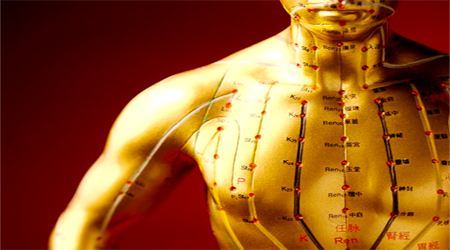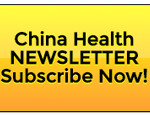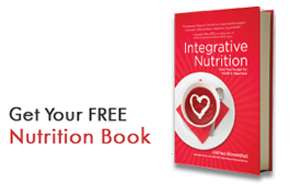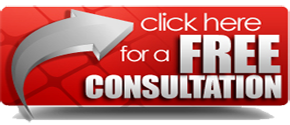Having worked in China for some years now I have a good working knowledge about the field of TCM, otherwise known as Traditional Chinese Medicine. Many times in my clinic I am asked by fellow expats if it “actually works?” That’s a good question and best answered (in my opinion) by “actually experiencing it for yourself.”
Below is a good introductory article on TCM and what you may expect if you do indeed want to try it, which from my experience, I thoroughly recommend.
How Chinese Medicine Can Contribute to Westerners’ Health and Wellness
Chinese Medicine works well on Americans, too: there’s little doubt that Americans enjoy the most technologically advanced medical care in the world. Still, there’s much we can learn from the Chinese system of medicine. Scientific studies of China’s ancient healing system are just beginning, and more are needed. But a growing body of research suggests that acupuncture, herbal remedies and other components of Chinese medicine do provide relief for many common ailments, even when Western medicine has failed. Chinese medicine is helpful for everything from asthma and arthritis to migraines and menstrual cramps. It can help cure alcoholism and other addictions . . . and help alleviate nausea and other side effects of cancer chemotherapy.
What is Chinese Medicine? The Chinese system of medicine is hard for Westerners to accept, or even grasp. More than a collection of exotic treatments, it’s a unique way of looking at the world and the body. The language Chinese physicians use to describe symptoms, diagnoses and physical processes is the language of the natural world. It uses terms like earth, metal and fire instead of the technical jargon familiar to most Western physicians and their patients. Whereas Western medicine focuses on the specific disease entities and diagnostic categories, the Chinese system views the body as both expressing and fueled by a basic animating force called qi (pronounced chee).
This vital energy circulates constantly through meridian–lines along the body on which the acupuncture points lie. Chinese medical therapies are concerned with restoring the balance of qi. Everything that takes place in the organs and elsewhere in the body is considered to be interconnected to the individual’s psychology, the time of day, season of the year . . . indeed, to all phenomena in the natural world.
The diagnostic techniques Chinese doctors use are alien to Western physicians. They include: touching and listening to the belly; identifying imbalances in the body, by observing the patient’s face and voice. For example, dark circles under the eyes might indicate a kidney ailment long before lab tests reveal it. Observing not just one pulse, but 12 different pulse points along the wrist. Noticing the appearance, texture and moistness of the tongue. A trembling tongue might suggest that qi is depleted.
Acupuncture: acupuncture has proved helpful for a variety of ailments – irritable bowel syndrome; migraines; hot flashes; and addictions. It can even serve as anesthetic during surgery. The Chinese maintain that acupuncture redistributes the flow of qi, thereby affecting the activity of organs. In Western terms, acupuncture induces the body to release natural anti-inflammatory substances and painkilling opiates. To find a qualified acupuncturist in your area, ask your doctor or your friends for a referral. If your state requires licensing to practice acupuncture (about half of all states do), call the state medical board to make sure the person you’re considering is licensed.
Herbal Remedies: the Chinese use herbs; gold and other minerals; and animal products (such as dried fish, bile and bones) to restore balance to the body. Example I: Ginseng eases stress, boosts immune function and enhances mood. Example II: Certain mushrooms, including shiitake, strengthen the immune system. Don’t start taking massive doses of an herbal remedy just because you’ve read about it. That can cause dangerous, and perhaps even fatal, side effects. Chinese herbalists use tiny doses of many herbs. This strategy ensures maximum benefit while minimizing side effects. If your doctor, acupuncturist or chiropractor is unable to recommend an herbalist, visit the nearest Asian-American neighborhood. The neighborhood pharmacist may be able to suggest someone. Many states require licensing of herbal therapists.
TAI CHI and QI GONG: Tai chi (pronounced tie chee), consists of a series of smoothly connected postures. There are many different “forms”, or sequences, of these movements. Performed with rapidity, tai chi is a martial art. Done slowly and contemplatively, however, it increases energy, flexibility and mental clarity. Tai chi instruction is offered at recreation centers, YMCAs, YWCAs and health clubs. Qi gong (pronounced chee gong), is an integrated system of movement, breathing and visualization. It involves fewer movements than tai chi, and greater use of imagery. In addition to its calming effects, qi gong seems to lower blood pressure, enhance immune function, and ease breathing in asthmatics. Many Chinese medicine practitioners are trained in qi gong, as are a growing number of Westerners.
If you are interested in experiencing any of the above please visit us at our clinic or check out our website www.HiMyDoctor.com for more information.









Leave A Response